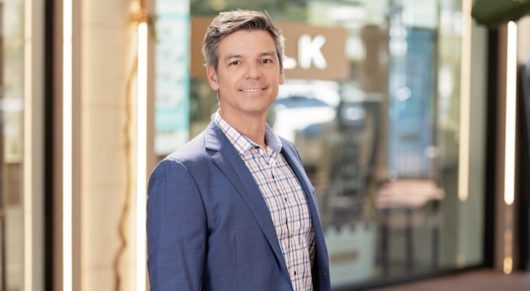Just as the Covid-19 pandemic changed the way people shop and how retailers operate, another kind of change has rippled through the workforce in the last two years and altered the landscape for employee expectations and the employer-worker relationship.
Aptly named “rise of the worker,” it describes the recent power-shift between workers and employers. Employees are now in the driver’s seat when it comes to when and how they work and looking to their employers for a positive work-life balance. In the retail industry, where jobs are often considered temporary, employee experience is even more critical to retaining people prepared to change jobs if their needs aren’t met.
Understanding this shift is critical for retail organisations to overcome the challenge of retaining their best staff while attracting new talent from retailers who aren’t fully engaging their employees. Ceridian’s recent employee research highlights factors influencing the rise of the worker, revealing aspects of the employee experience that are worth looking at for retailers to win the war for talent.
Long working hours, overtime pay, and burnout
Retail workers have joined the ranks of Covid front-liners, ensuring that consumers have access to essential items even through lockdowns. With the tight labour market, more employees have increased workloads and extended hours. However, not all of them get paid for the extra hours worked: across 50 per cent of Australians who work overtime, only 36 per cent get their overtime pay.
Besides getting their overtime pay, the increased workload and long work hours also contribute to burnout. Eighty-five per cent of Australian respondents in Ceridian’s 2022 Pulse of Talent reported experiencing burnout, significantly impacting productivity: 32 per cent have shown less interest in work, 30 per cent struggle with focus, and 14 per cent leave the company. While the numbers may seem daunting, retailers should see this as an opportunity to actively address the causes of burnout by leveraging technology to create better schedules, match staff to demand, and ensure employees are paid fairly.
Heightened financial stress and increased desire for consumerised pay
Swiss Re’s 2021 Apac Covid-19 research reveals that 25 per cent of Australians are concerned about their financial recovery from the pandemic. Financial stress has a direct impact on employee engagement, causing lower productivity and higher absenteeism.
It is no surprise, then, that many employees have shown an increased desire for consumerised pay that caters to the shift in employee expectations and provides benefits fit for a modern workforce. The concept of consumerised pay allows employees near real-time access to their entitlements via digital channels rather than waiting for a traditional periodic pay cycle. The global health pandemic magnified the issue of financial insecurity, especially among the most vulnerable. Early access to earned wages, also known as on-demand pay, can give people the peace of mind to cover an unexpected expense or the ability to take advantage of investment opportunities they might not otherwise have.
Perks and benefits that have value to employees
Attracting and retaining talent is not just about increasing pay but approaching the whole employee experience with perks and benefits employees truly value.
Flexible work remains the top benefit that Australian employees seek in their employers. However, working arrangements across many industries have drastically changed since the pandemic. For example, while in-store work may never completely disappear, retailers may provide flexible work options for their employees by leveraging e-commerce and omnichannel retail strategies both now and beyond the pandemic.
The evidence is clear that the power has shifted. Employees expect more from their employers and are prepared to actively seek new opportunities if expectations aren’t met. In the “never normal” caused by the Covid-19 pandemic, Australian retailers need to make a more strategic approach to meet the rising expectations of their employees to attract and retain the right talent.
Learn more about how Ceridian can help retailers learn, adapt, and evolve to whatever the future holds with Dayforce.
About the author: Stephen Moore is MD, Asia Pacific Japan, at Ceridian.






